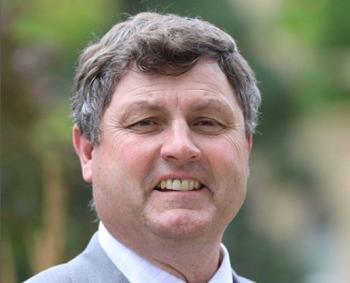Image Caption
Local Journalism Initiative Reporter
Windspeaker.com
Alberta Indigenous Relations Minister Rick Wilson is confident that new procedures put in place to account for the use of taxpayers’ dollars in the $5 million Aboriginal Business Investment Fund (ABIF) address concerns outlined by the auditor general last year.
In the report entitled Indigenous Economic Participation released May 2022, Auditor General Doug Wylie concluded that processes in place for four programs (including ABIF) delivered by Indigenous Relations and two programs delivered by Labour and Immigration were missing “the foundational elements of the accountability model.”
Wilson points out that the audit undertaken was on program delivery prior to his UCP government coming to power and prior to him becoming minister of Indigenous Relations.
“We have a very thorough review process, and we make sure that when the funds are given out, (the recipients) report to how the funds are spent and how they’re used for the project,” he said.
A past recipient (prior to the UCP government) has been asked to refund the money they received. Wilson would not identify the community and said he did not know the amount that was to be reimbursed.
Assistant deputy ministers from six departments, including infrastructure, energy, and jobs, economy and innovation, are working with Indigenous Relations to review the projects to ensure they are viable and not approved “just (as) a political decision,” said Wilson.
ABIF provides between $150,000 and $500,000 to support the capital costs of community-owned development projects. Communities must own and control 51 per cent or more of the proposed business or joint venture.
The maximum amount was decreased from $750,000 effective April 1, 2020.
“It gives the communities opportunities to start some of the smaller businesses maybe they wouldn’t be able to afford to without this program. This is a straight-up grant to help the smaller businesses,” said Wilson.
Fourteen projects were announced yesterday with six receiving the maximum amount and the remainder each allotted $250,000. Funding went to both First Nations and Métis communities. Projects ranged from Elders’ housing and rental suites to a gas station to forest harvesting to an eco bison ranch.
Since 2020, according to figures supplied by the Indigenous Relations department, 378 full-time jobs have been created and 254 full-time construction jobs.
The auditor general’s report indicated that from 2016-2019, ABIF dollars, on an annual average, represented 20 per cent to 34 per cent of a project’s total cost. Those three years saw 23 projects approved with each year having a limit of $5 million to be meted out.
ABIF did not operate in 2019-2020. When it restarted in 2020-21, it provided $5 million to 13 projects.
Wilson concedes the pot has remained the same although more communities have received funding.
However, he said, there is the possibility of increasing those funding dollars. He couldn’t offer any details as the budget is scheduled to be tabled on Feb. 28.
Wilson sits on the Treasury Board. It’s the first time a minister from Indigenous Relations has had that appointment.
“So you can see the importance we put on Indigenous Relations to make sure there’s input from my department. We’ve worked really hard to make sure that there’s sufficient funding for worthwhile projects going forward. I can’t go into details of the actual numbers but it’s a good news budget from Indigenous Relations,” he said.
Local Journalism Initiative Reporters are supported by a financial contribution made by the Government of Canada.

